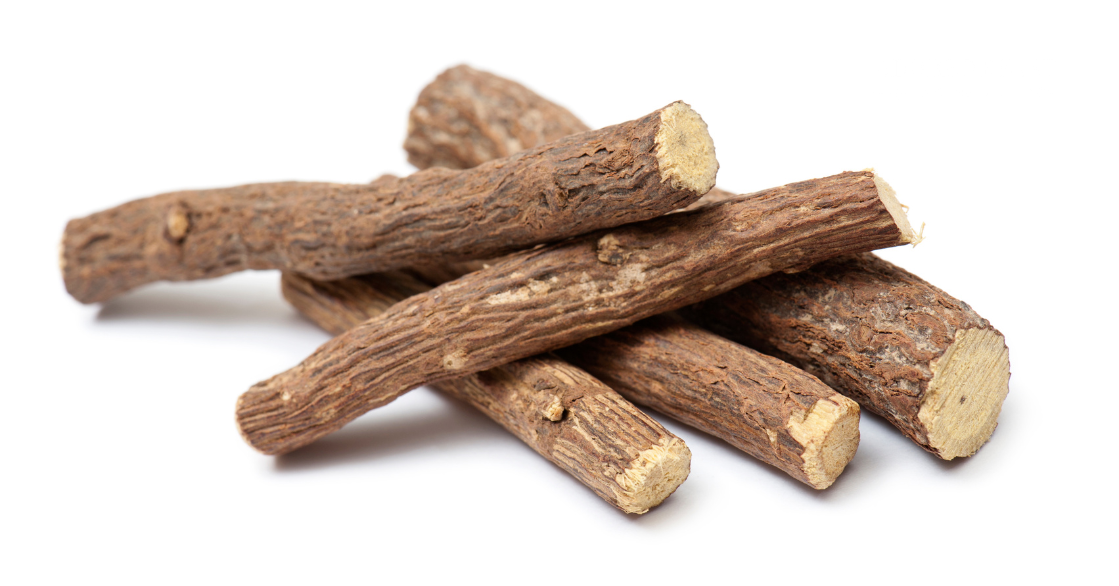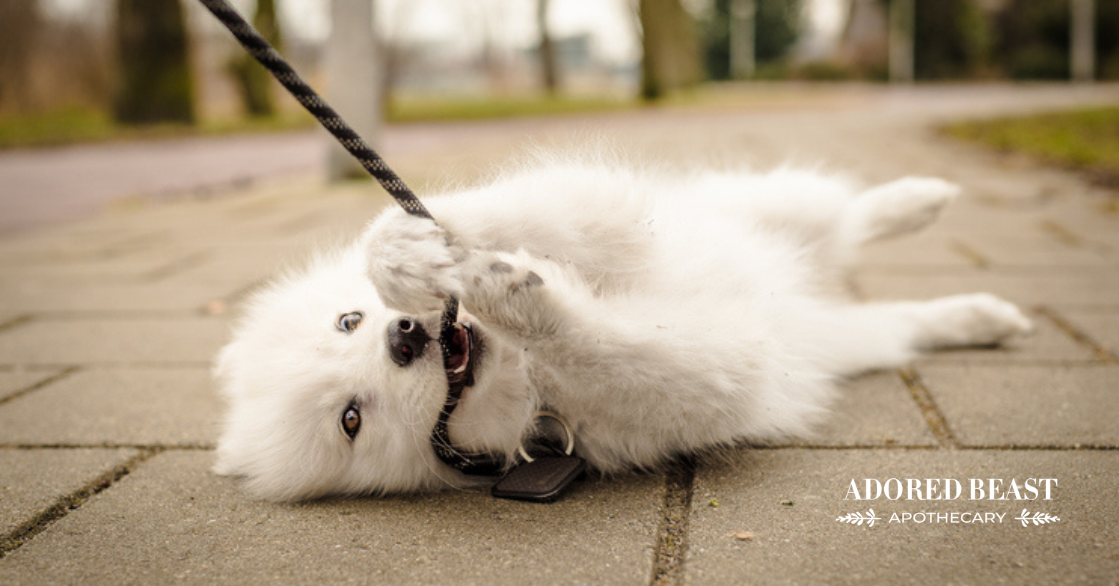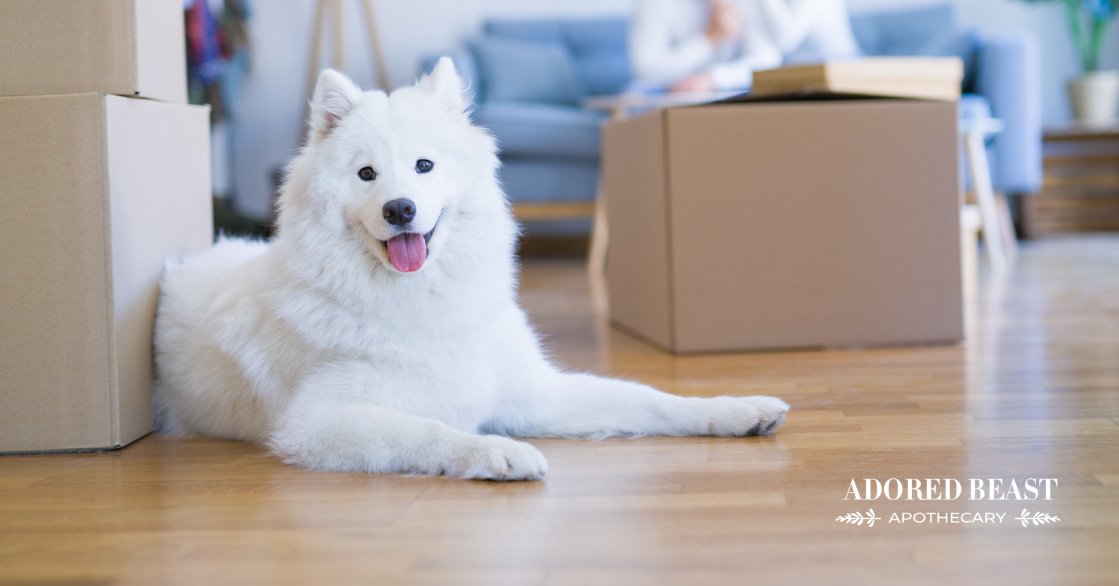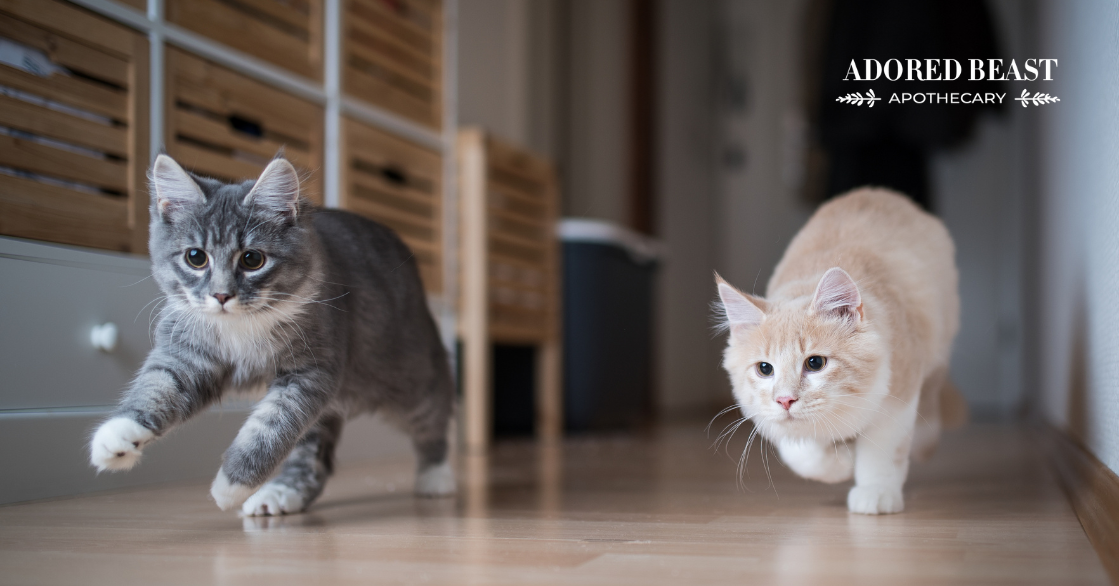If you know anything about Adored Beast, it’s that we turn to nature for the answers as often as possible. The healing power of natural substances is incredible, and is something that we continue to learn about each and every day.
And that includes a rather unassuming plant called licroice root.
The history of licorice root (Glycyrrhiza glabra) is impressive, and dates back at least 3000 years. Ancient Greeks used it way back in the 3rd century, and the indigenous people of the area most likely used it long before this. It has been used in traditional Chinese medicine for centuries. And, it has a wide range of medicinal uses for dogs.
This week, we’re talking about licorice root for dogs: how to use it, when NOT to use it, and why.
Why We Love Licorice Root
The benefits of licorice root are numerous, and it is used for many different things. More than 20 triterpenoids and nearly 300 flavonoids have been isolated from licorice. Recent studies have shown that these metabolites possess many pharmacological activities, such as antiviral, antimicrobial, anti-inflammatory, anti-tumor and other activities.
Here are some of the most well-known reasons it is used, both in human and animal healthcare:
- expectorant
- demulcent
- anti-inflammatory
- antitussive
- antimicrobial
- antiviral
- anti-convulsive
- anti-cancer
- detoxifier
Licorice Root for Dogs
Licorice root for dogs is a very safe and beneficial herb, with a few cautions (don’t worry – we’ll cover those below).
Thanks to its anti-inflammatory and expectorant properties, licorice root is popular for the gastrointestinal tract and GI issues. It not only works to reduce gastric acid activity, it also has anti-inflammatory effects on the mucosal linings of the gut. Its antimicrobial properties can also help to rebalance gut flora and the soothing effects can be valuable for GI issues, including leaky gut.
In fact, research shows that licorice root can help reduce inflammation in the GI tract. For example, a study done in 2015 showed that when licorice extract was combined with a certain NSAID drug, colon inflammation decreased significantly.
Those same properties make it valuable for the respiratory tract. Licorice can work well for coughing since it can help loosen built-up mucus and help expel it from the lungs.
We use licorice root in our Gut Soothe (and Feline Gut Soothe for the kitties) for these exact reasons!
You can also use licorice root for dogs topically. It has been shown to help with skin inflammation, and could be useful for skin conditions. Just make an oil infusion by placing chopped dried licorice root in a glass jar and covering it with olive oil. Put the lid on and store it in a warm place for 30 days. Strain through cheesecloth and save in a clean jar in the fridge. Apply to your dog’s skin as needed to relieve itching and discomfort. Dogs tend to like the taste, so they may try to lick it off. It is fine if they do, but try not to let them – you want it to soak in. Pro Tip: Giving them a raw meaty bone to distract them can help!
How to Use Licorice Root Safely
We always choose to go with deglycyrrhizinated licorice (DGL). This is licorice root that has the glycyrrhizin removed. Glycyrrhizin can be beneficial – it has many beneficial properties, but it can be problematic, especially when used long term. Going for licorice without the glycyrrhizin is just a safer bet.
Additionally, although licorice root is safe for dogs – it isn’t recommended for pregnant dogs.
Can Dogs Eat Licorice?
When most people think of licorice, they think of bright red twists or black licorice laces. But did you know that most licorice candy does not actually contain any licorice! These candies use anise oil instead, which smells and tastes very similar to licorice but lacks the medicinal properties that licorice contains.
Now we know that licorice root for dogs is often a healthy choice for a variety of reasons, but what about red or black licorice – are these safe to share?
Nope. That’s not a good choice.
Really, there’s no reason to be sharing any type of candy with your pup. Not only is it full of sugar, it might even contain harmful ingredients like xylitol – which can be fatal! Stick to the licorice root!












![[RESEARCH] Is Herbicide Safe for Dogs?](https://blog.adoredbeast.com/wp-content/uploads/2025/06/herbicides-safe-for-dogs-103x55.png)